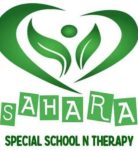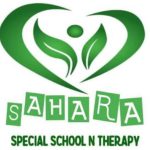Child Development

Occupational Therapy
Occupation Therpay in Agra

Speech Therapy
Speech Therapy in Agra

Brain Gym
Brain Gym

Sensory Integration
Sensory Integration In Agra

Special Education
Special Education

Behaviour Therapy
Behaviour Therapy
Autism, ADHD and Down Syndrome Treatment in Agra
Sahara Child Development & Physiotherapy Center in Agra is a leading multidisciplinary therapy center that provides comprehensive and individualized care for children with neurodevelopmental conditions such as Autism, ADHD, and Down Syndrome. Through a team-based approach that includes physiotherapy, special education, speech therapy, sensory integration, and behavioral therapy, the center empowers children and supports families on the journey toward progress and independence.
Led by Dr. Durgesh Kashyap (Pediatric Physiotherapist) and Mrs. Jyotsna Rani (Special Educator), the center has become a trusted destination for parents in and around Agra seeking quality intervention for developmental disorders.

🧩 Conditions Treated
1. Autism Spectrum Disorder (ASD)
Children with Autism often face challenges in:
Communication and language
Social interactions
Sensory processing (over/under-sensitive to sounds, lights, textures)
Repetitive behaviors and restricted interests
2. Attention Deficit Hyperactivity Disorder (ADHD)
Children with ADHD may exhibit:
Inattention or short attention span
Hyperactivity or constant movement
Impulsivity and difficulty in following instructions
Poor academic and behavioral regulation
3. Down Syndrome
Children with Down Syndrome often show:
Developmental delays
Low muscle tone (hypotonia)
Intellectual disability (mild to moderate)
Speech delays and learning difficulties
Heart or health-related complications (in some cases)
🏥 Multidisciplinary Treatment Approach at Sahara Center
✅ 1. Special Education
Individualized Education Plans (IEPs) for learning support
Focus on pre-academic and academic readiness
Social skills training and classroom behavior management
Cognitive stimulation and daily life training
✅ 2. Speech and Language Therapy
Improves language comprehension and verbal expression
AAC (Augmentative and Alternative Communication) for non-verbal children
Voice modulation, articulation, and sentence building
Social communication skills for children with autism
✅ 3. Sensory Integration Therapy
Helps children manage sensory processing issues (common in ASD and ADHD)
Reduces meltdowns, sensory seeking, or sensory avoiding behaviors
Promotes calmness, attention, and emotional regulation
✅ 4. Physiotherapy
Especially beneficial for children with Down Syndrome (for improving muscle tone, balance, and coordination)
Helps ADHD children channel energy through structured physical routines
Postural and motor coordination therapy for better movement control
✅ 5. Behavioral Strategies & Parent Guidance
Positive behavior support systems
Techniques to reduce aggression, self-stimulation, or inattentiveness
Parent counseling to ensure home reinforcement and progress monitoring
Opening Hours
- Monday 10 to 3 PM
- Tuesday 10 to 3 PM
- Wednesday 10 to 3 PM
- Thursday 10 to 3 PM
- Friday 10 to 3 PM
- Saturday 10 to 3 PM

